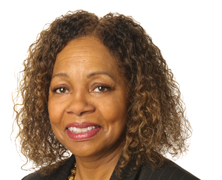As a first-generation college student who grew up in North Carolina, I was the first of eight siblings to finish high school and attend college, although I was the third oldest child. Over the years I have often questioned the driving force that led me to obtain a college degree and pursue a professional career. Reflecting back on my childhood, it was clearly my illiterate maternal grandmother and my undereducated parents. In the early years, my dad earned a living as an auto mechanic and my mom worked as a maid and tobacco factory worker. Their assets were their wisdom, sensibility, and strong faith.
My grandmother lived with us and served as caretaker of the house and my siblings. She often relied on me to read to her and write her letters. It was during those intimate moments that she would talk to me about education as the great equalizer. Always reminded of the vestiges of slavery, she kept repeating, “whatever you put in your head, no one can ever take from you.” My parents echoed a similar message about the importance and necessity of gaining a good education.
These messages incentivized me to attend college and receive undergraduate and graduate degrees, but I still lacked confidence in my managerial capabilities when I observed my counterparts. Interestingly enough I have had a number of informal personal mentors in my life. I did not view them as mentors at the time. I perfected a habit of always surrounding myself with a network of people who exhibited the qualities which I lacked or I needed to improve upon. I refer to this network as my sphere of positive influence since these mentoring relationships started at home with my parents and grandmother. They have continued with my friendships and other external relationships and have always inspired me to reach for the top and go the distance.
Addressing others’ needs is the price we pay for being able to access the network, and this usually comes at an inopportune time. On such occasions, I must remember to take a deep breath, place what I am working on aside and focus on the issue at hand. This often requires my making and taking the time, interest and concern to contribute to the success of others at the time they most need my guidance and input. This is the time to become cheerfully selfless and redeposit in the bank what has been provided to me. Let it be a reminder to all of us the reciprocal nature of mentoring relationships; in other words, “To whom much is given, much is expected.”







